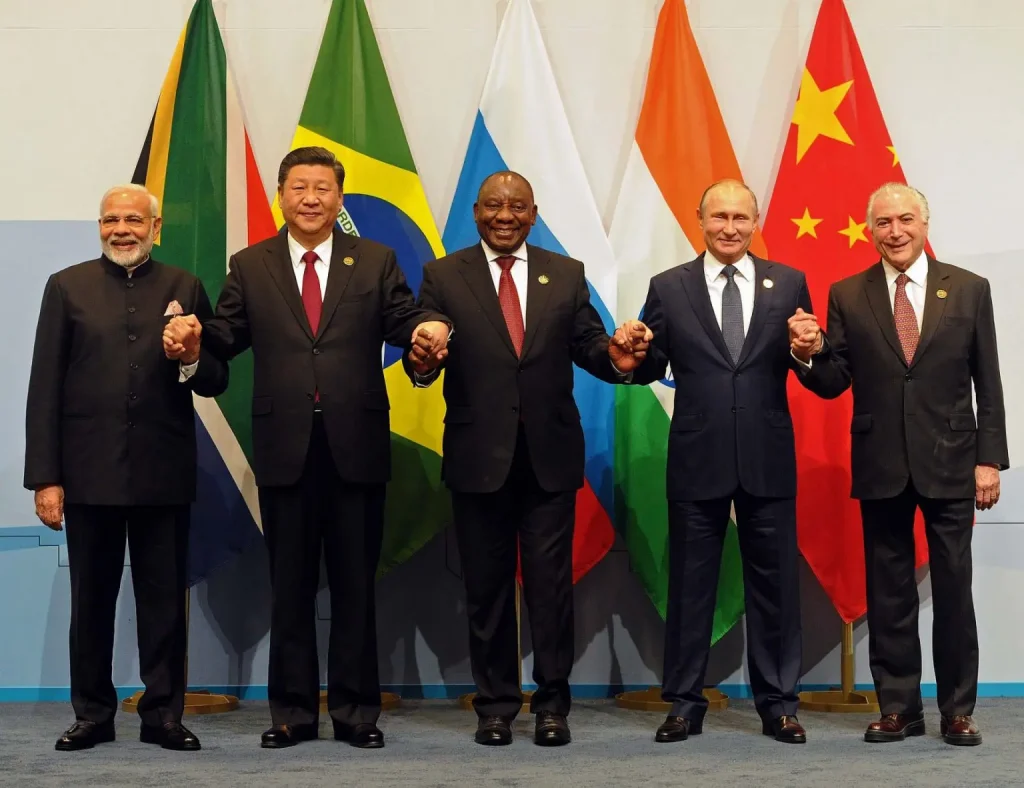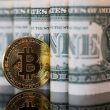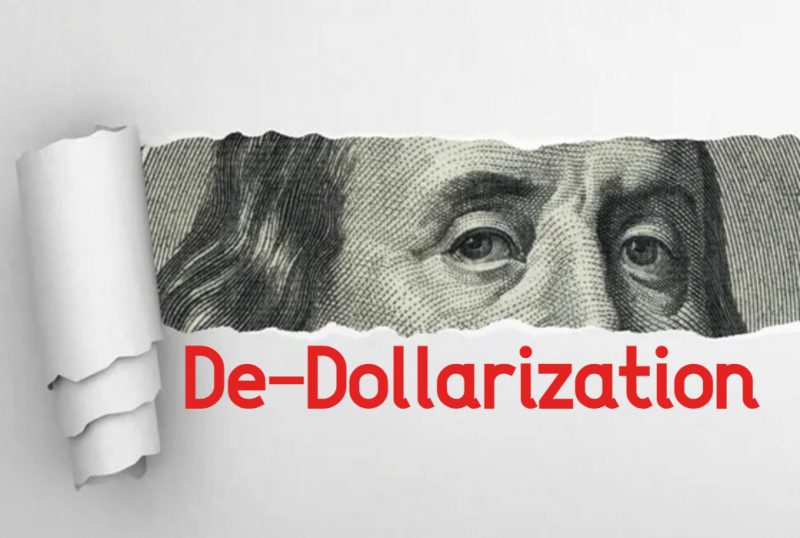BRICS is beating the drum of a US dollar decline even before launching a common currency in the global markets. The operating style is typical of that of any developing country where leaders talk big but deliver nothing. It also reflects the mindset of emerging economies where a simple piece of governmental work is lauded as ‘major achievement’. Even the BRICS de-dollarization agenda falls under the same category which is heavily exaggerated to the brim by their leaders.
Also Read: BRICS Inspires 15 Countries To Use Homegrown Payment System
Rewriting trade deals and forging new partnerships is a daily yet regular phenomenon in the global financial world. That’s not the case for BRICS members, as each trade deal is shown as a brownie point to their people marketed as de-dollarization. While we agree that BRICS settled many deals in local currencies, the number is minuscule compared to the global trade volume. It is as good as making a mountain out of a molehill, which leaders from developing countries have mastered.
De-Dollarization Is Heavily Exaggerated by BRICS: Here’s Why

Around 88% of all global forex transactions involve the US dollar and that’s a huge number to be replaced or brought down. The dollar also accounts for 58–60% of global reserves, which is far ahead of any BRICS member’s local currency. 50% of global trade is settled in the USD, even between countries outside America and the West as a whole. Therefore, BRICS claiming that it has penetrated its hegemony through de-dollarization is nothing but a farce.
Also Read: India Reveals New Details About BRICS Currency
But that’s an average day in the developing world as a smokescreen form of politics is the norm. People are unable to differentiate between reality and exaggeration as the quest to come out on top is immeasurable. While BRICS has made several symbolic moves to take on the US dollar, the de-dollarization agenda will not cause a dent in the greenback’s prospects. Even if it does, there is no viable alternative currency available in the market to replace the US dollar.





